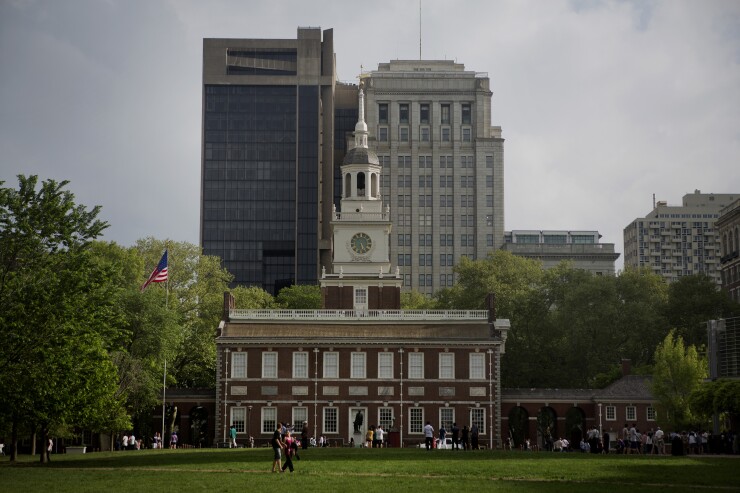The $4.7 billion budget proposal Philadelphia Mayor Jim Kenney
Revenues from the 1.5 cent-per-ounce tax on sugary beverages that went into effect Jan. 1, 2017 fell $12.2 million short of the city’s $91 million forecast last year prompting the Kenney administration to lower its fiscal 2019 projections by 15%. Philadelphia was planning to use a portion of the beverage tax collections to back $300 million in bonds through three transactions to fund improvements to parks, libraries and recreation centers, but city officials said last week that the total borrowing will now likely be reduced.

“We have a responsibility to make a reasonable projection, and currently $78 million is the most reasonable amount to project, as it is informed by the first year of collections,” Philadelphia Budget Director Anna Adams said in a statement. “We feel this conservative and data-driven approach is best.”
Kenney said last year that bonds for the capital improvements would be
Philadelphia’s plans to fund bonding under the city’s Rebuild Initiative and expand prekindergarten enrollment from the soda tax revenues are now on hold pending the outcome of
The Kenney administration is reserving a portion of the beverage tax revenue until the courts settle the issue. If the lawsuit is resolved in Philadelphia’s favor, the city is planning to use reserves it saved from the tax starting in the 2020 fiscal year. City officials estimate that the tax will generate $500 million through the end of the 2023 fiscal year.
Villanova School of Business Professor David Fiorenza said the lower beverage tax revenues are a warning sign that Philadelphians are resistant to new taxes and will not hesitate traveling to neighboring areas for soda purchases. He said the city needs to stop relying on taxes and more on reducing spending.
“Some of the challenges in the next few years will be the ongoing expenses and unfunded obligations of pensions for all city workers,” said Fiorenza. “It’s a problem that does not want to be addressed for various reasons, one of them being the unions.”
Kenney is proposing a 6% property tax hike to aid the cash-strapped Philadelphia School District, which is projected to run a $900 million deficit by 2023. The state-dominated School Reform Commission, which has governed Pennsylvania’s largest public school system since December 2001, voted this past November to return to
Philadelphia has general obligation bonds of A2 by Moody’s Investors Service, A-plus by S&P Global Ratings and A-minus by Fitch Ratings.





